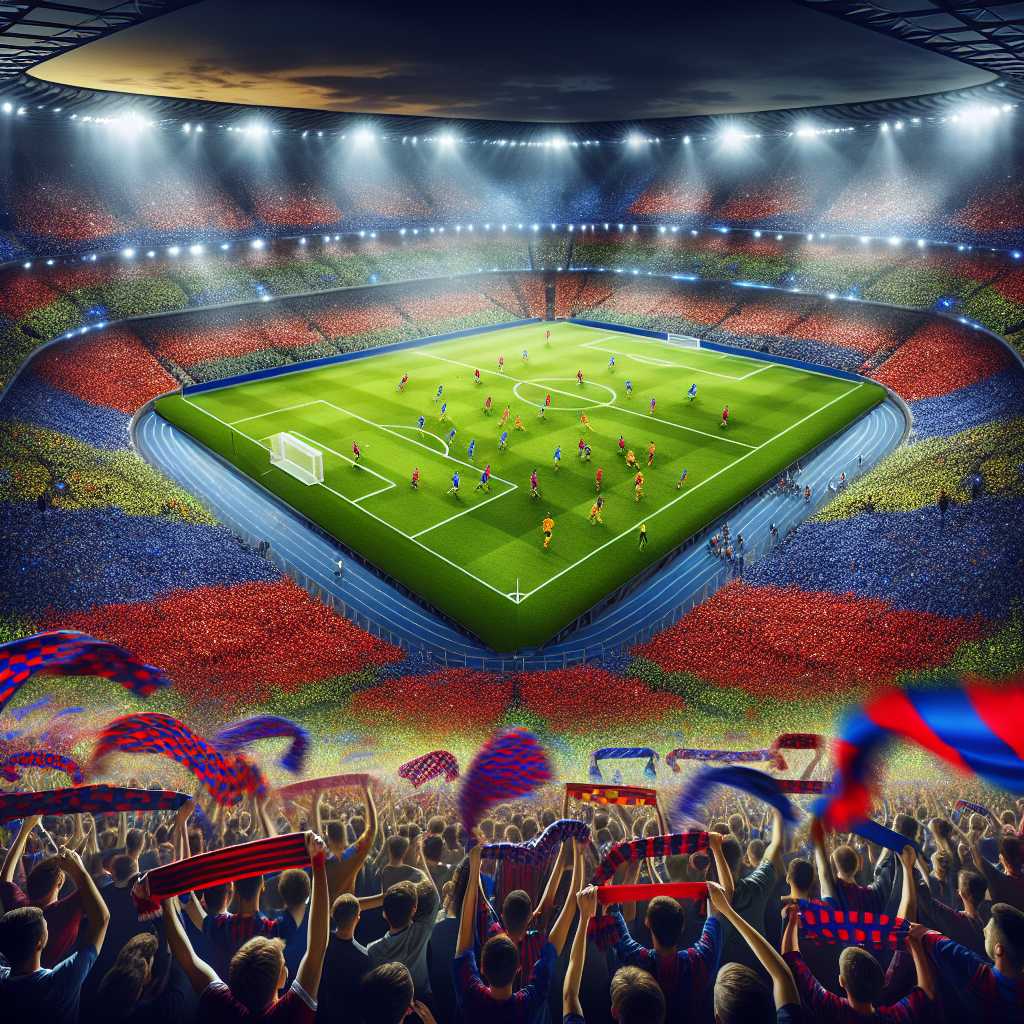The Thrills and Heritage: Spain’s La Liga
La Liga, officially known as La Liga Santander due to sponsorship reasons, is the top professional football division of the Spanish football league system. It is contested by 20 teams, with the three lowest-placed teams relegated to the Segunda División and replaced by the top three teams in that division. Aside from its passionate fan base, top-tier talent, and tactical innovations, La Liga has been a breeding ground for some of the world’s most celebrated footballers and has etched an indelible mark on the global sporting landscape.
Historical Context of La Liga in World Football
Prominent globally for its technical quality and captivating playing style, La Liga has a rich heritage that dates back to its founding in 1929. Over the years, it has evolved into one of the leading football leagues in the world. Historically dominated by giants Real Madrid and FC Barcelona, whose fierce rivalry is known as “El Clásico”, the league has often been a two-horse race, but it has also seen other clubs like Atlético Madrid, Valencia, and Deportivo La Coruña win the title.
The period following the Spanish Civil War saw La Liga grow in prestige, coinciding with Real Madrid’s five consecutive European Cup victories in the 1950s. The league gained a reputation for hosting remarkable footballing talents including Alfredo Di Stefano, Ferenc Puskas, and Francisco Gento during these early decades.
During the 1990s and 2000s, the league continued to attract superstars such as Zinedine Zidane, Ronaldinho, and Ronaldo Nazário. More recently, it featured a legendary contest between Lionel Messi and Cristiano Ronaldo, enhancing its global following. Their respective teams battled for domestic titles year after year while both players shattered numerous scoring records.
Structure and Competition Format
League Organization and Season Overview: La Liga operates on a system of promotion and relegation. Each club plays every other club twice during the season – once at home and once away – totaling 38 matches in all. Points are awarded based on match outcomes: three for a win, one for a draw, and none for a loss. The team that amasses the greatest number of points by season’s end is crowned the champion. Champions League and Europa League Qualification: In European competitions, the top four teams at the end of each season secure qualification to the group stages of the prestigious UEFA Champions League. Further places in the UEFA Europa League – typically two – are allotted to teams who finish just below them. Relegation and Promotion Mechanism: Conversely, teams finishing at the bottom end of the table face relegation to Segunda División. Concurrently Segunda’s best competitors are promoted, ensuring a dynamic league where each new season can offer different challenges. Youth Development and Talent-Nurturing:
Champions League and Europa League Qualification: In European competitions, the top four teams at the end of each season secure qualification to the group stages of the prestigious UEFA Champions League. Further places in the UEFA Europa League – typically two – are allotted to teams who finish just below them. Relegation and Promotion Mechanism: Conversely, teams finishing at the bottom end of the table face relegation to Segunda División. Concurrently Segunda’s best competitors are promoted, ensuring a dynamic league where each new season can offer different challenges. Youth Development and Talent-Nurturing:
Relegation and Promotion Mechanism: Conversely, teams finishing at the bottom end of the table face relegation to Segunda División. Concurrently Segunda’s best competitors are promoted, ensuring a dynamic league where each new season can offer different challenges. Youth Development and Talent-Nurturing:
Youth Development and Talent-Nurturing:
Clubs within La Liga have established some of the most highly regarded youth academies or “canteras” in world football. Emphasizing skill development through methodologies like Spain’s famous tiki-taka playing style has contributed to producing talented players who impact both domestic and international stages.
Through this system emerges a steady stream of young players into first-team setups or onto bigger stages across Europe where they frequently become influencers of modern football tactics.
Cultural Impact and Economic Significance
La Liga holds an integral place within Spanish culture. Matchdays are festive occasions abundant with spectator camaraderie—the flood of team colors across cities on game days is a testament to this passion. Football club rivalries often echo cultural and political tensions too, giving certain matchups extra gravitas.
From an economic perspective, La Liga contributes significantly to Spanish revenue— both through direct spending on games (match-day revenues) and international broadcasting rights contracts. Transfers involving La Liga often break records or capture headlines globally given the quality of talent that graces its pitches.
Modern Developments in Broadcasting and Reception
Advancements in live broadcasting technology have enhanced how La Liga reaches its audiences worldwide. With multi-camera angles and HD streaming services available via smartphones or personalised offerings from clubs themselves—like dedicated TV channels—fans are never far from real-time or archival content.
These technological developments have expanded La Liga’s footprint into markets previously untouched by Spanish football content decades years ago thus fueling global fanbase growth.
Notes
Image description: A picturesque view captures a busy day at a packed La Liga stadium with fans adorned in their team’s vibrant scarves creating a sea of color; below them on the lush green field players contest eagerly with skillful dribbling action displayed under bright floodlights.
